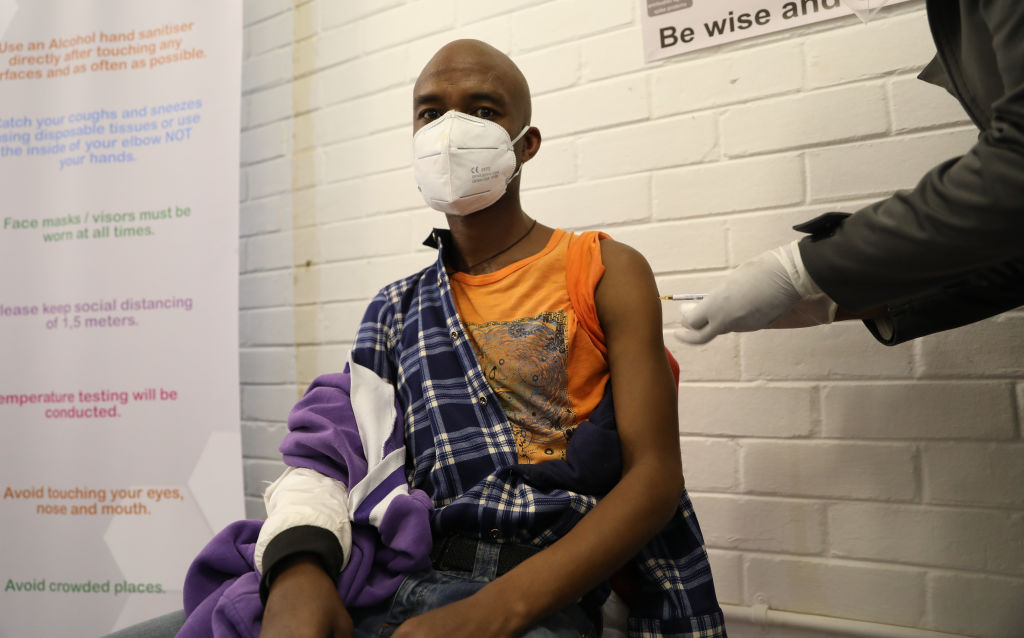Pfizer Gives COVAX a Shot in the Arm
ADF STAFF
After nearly a year of fighting the COVID-19 pandemic, Africa is getting reinforcements.
Vaccine deliveries are beginning, just as a second wave of infections envelops the continent.
COVAX, the global distribution syndicate that aims to provide billions of doses for middle- and lower-income countries, recently received a boost from Pfizer. The U.S. pharmaceutical company announced on January 22 that it will supply the program with up to 40 million doses of its COVID-19 vaccine.
“The arrival of these vaccines contains the promise that we can turn the tide on this disease that has caused so much devastation and hardship in our country and across the world,” South African President Cyril Ramaphosa said in a February 1 address to the nation.
Since the pandemic struck in 2020, more than 3.5 million cases of COVID-19 have been confirmed on the continent, and nearly 89,000 people have died, according to the January 28 statistics from Africa Centres for Disease Control and Prevention (Africa CDC).
African countries recorded 18,000 new cases a day during the first wave in 2020. The second wave is producing about 30,000 per day.
“It’s hitting very, very hard,” Africa CDC Director John Nkengasong said in a recent briefing, noting that confirmed deaths jumped 21% in one January week with more than 5,400 reported.
Although some middle-income nations such as Egypt, Morocco and the Seychelles already have begun vaccinations, the World Health Organization (WHO) has warned that just a quarter of African countries have adequate plans for funding the acquisition and distribution of doses.
In April 2020, the WHO teamed with the Coalition for Epidemic Preparedness Innovations and Gavi, the Vaccine Alliance, to create COVAX. Since then, 190 countries have joined the consortium to meet the goal of ensuring equitable access to vaccines during the pandemic.
Approved for emergency use by the WHO, the Pfizer-BioNTech vaccine consists of two shots spread three or four weeks apart — meaning the January COVAX deal will inoculate at least 20 million people.
In a virtual press conference on February 3, WHO immunization chief Dr. Ann Lindstrand said the first shipment of 1.2 million doses of the Pfizer/BioNTech vaccine would kick-start distribution “hopefully by the end of February, beginning of March.”
Cabo Verde, Rwanda, South Africa and Tunisia will be the first countries in Africa to get the Pfizer shot, she said, noting the condition of ultra-cold chain storage Pfizer’s vaccine requires.
South Africa also has secured 20 million additional doses from Pfizer, according to Health Minister Dr. Zweli Mkhize. He said storage of the Pfizer/BioNTech vaccine, which needs to be kept at minus 70 degrees Celsius, would not be an issue.
“We have some capacity, mostly in academic institutions,” he told The Sunday Times. “There are now companies coming forward with storage and transit solutions.”
Gavi CEO Seth Berkley said in late January that COVAX intends to deliver 2.3 billion doses by the end of the year, including 1.8 billion free doses to lower-income countries.
The WHO is hoping to start vaccinations in all countries worldwide by early April and have high-risk populations vaccinated by the middle of the year.
“The arrival of vaccines is giving all of us a glimpse of the light at the end of the tunnel,” WHO Director-General Tedros Adhanom Ghebreyesus said to reporters. “But we will only truly end the pandemic if we end it everywhere at the same time.
“This agreement with Pfizer will help to enable COVAX to save lives, stabilize health systems and drive the global economic recovery.”


Comments are closed.